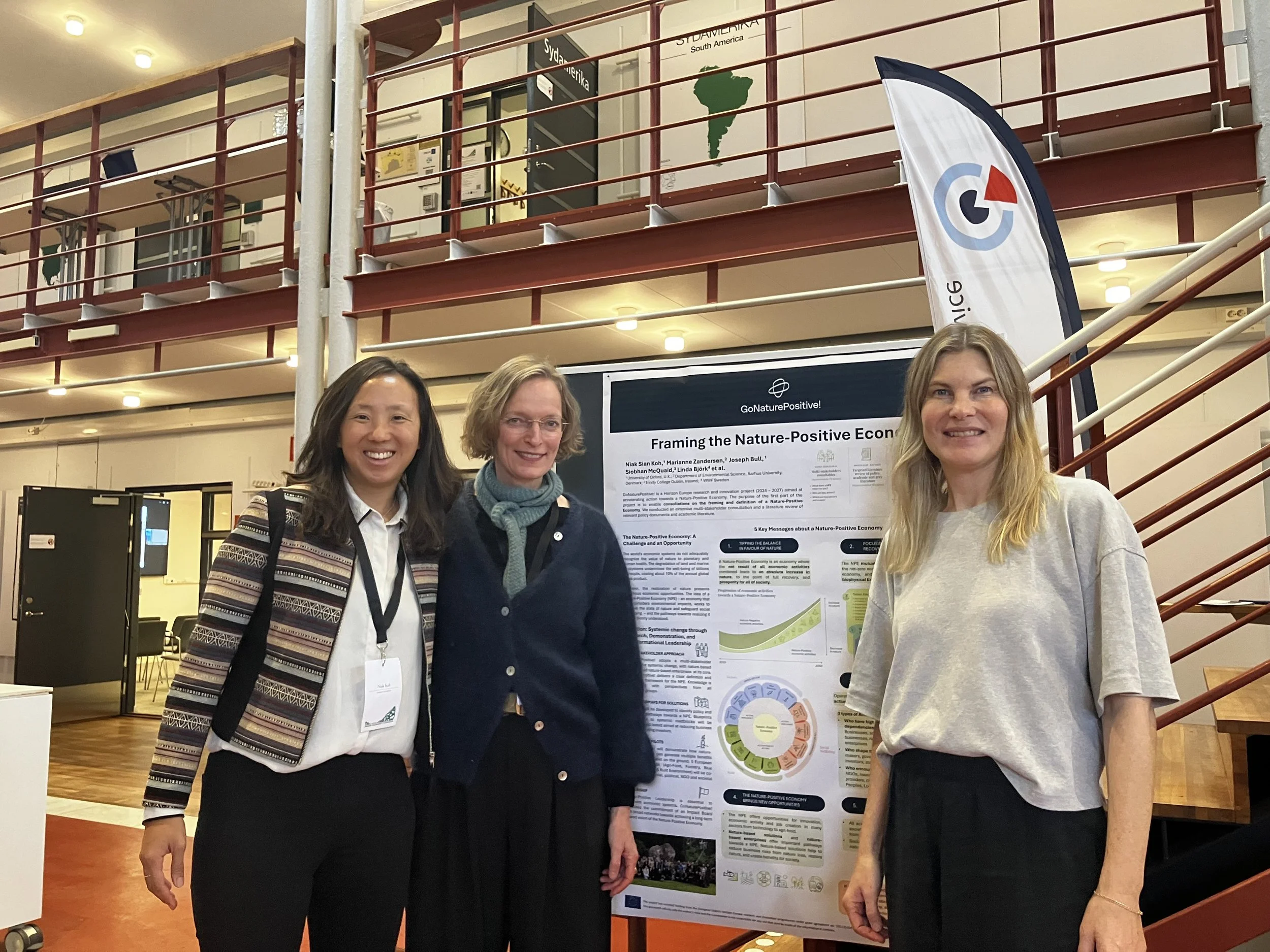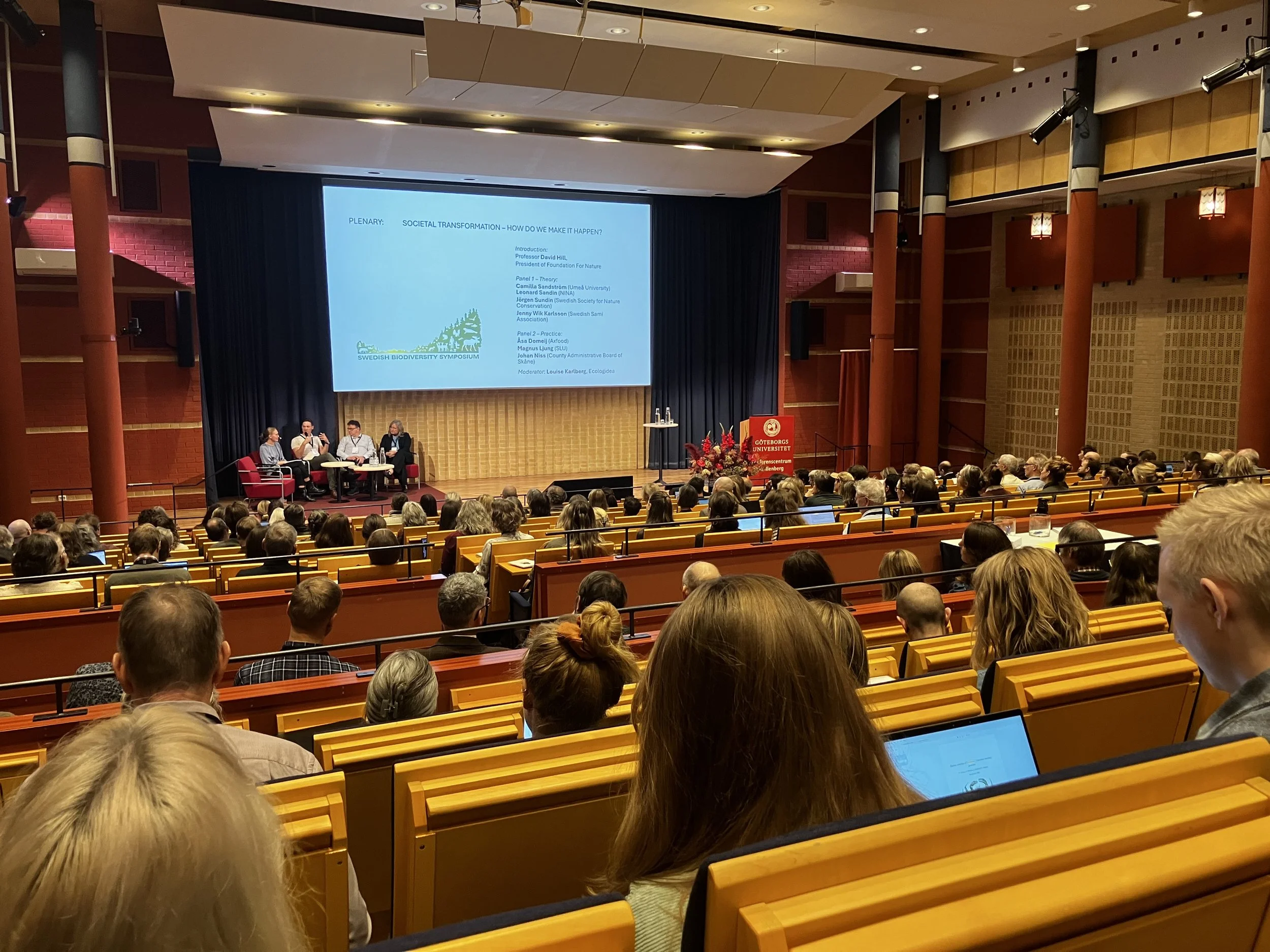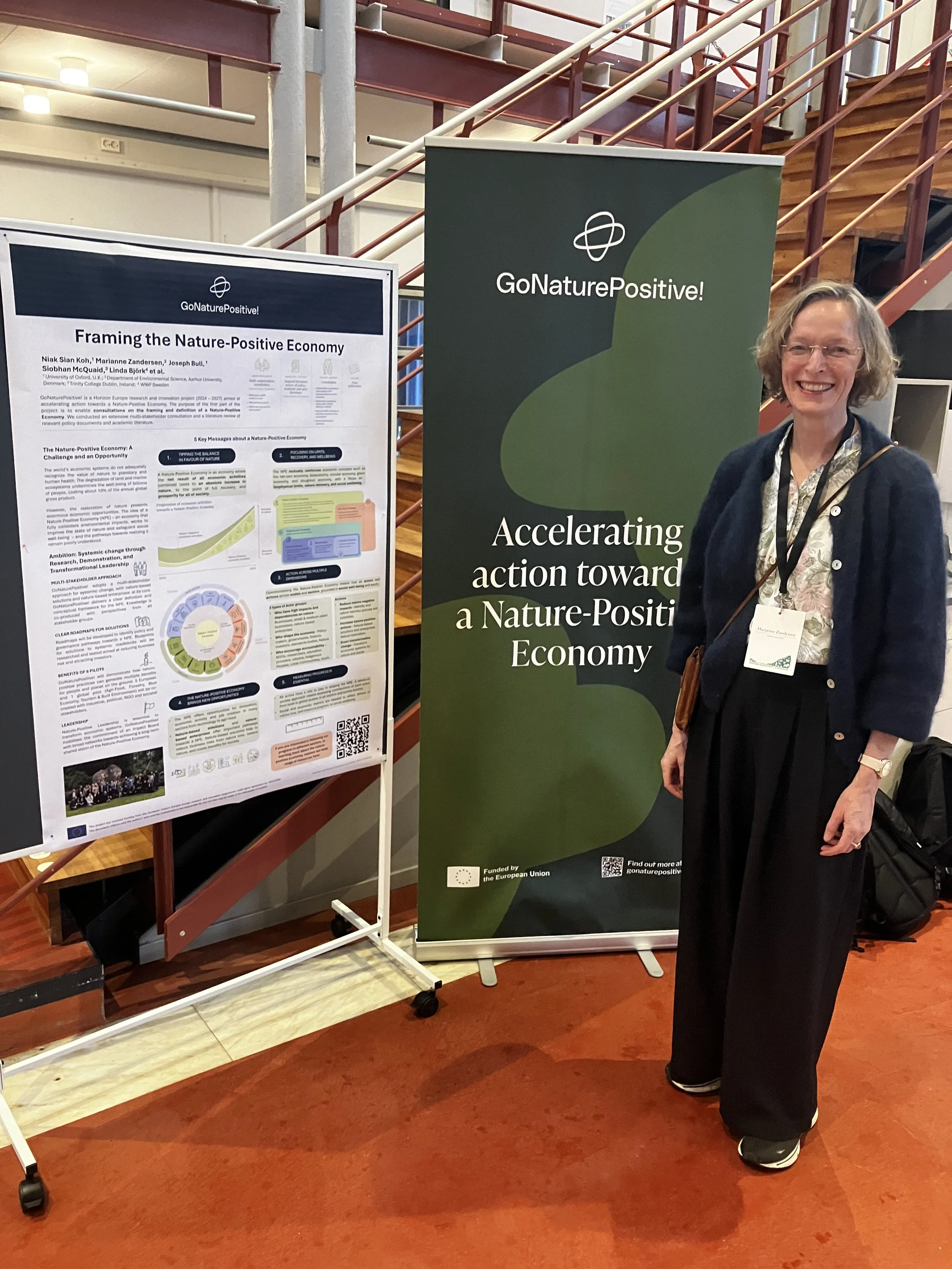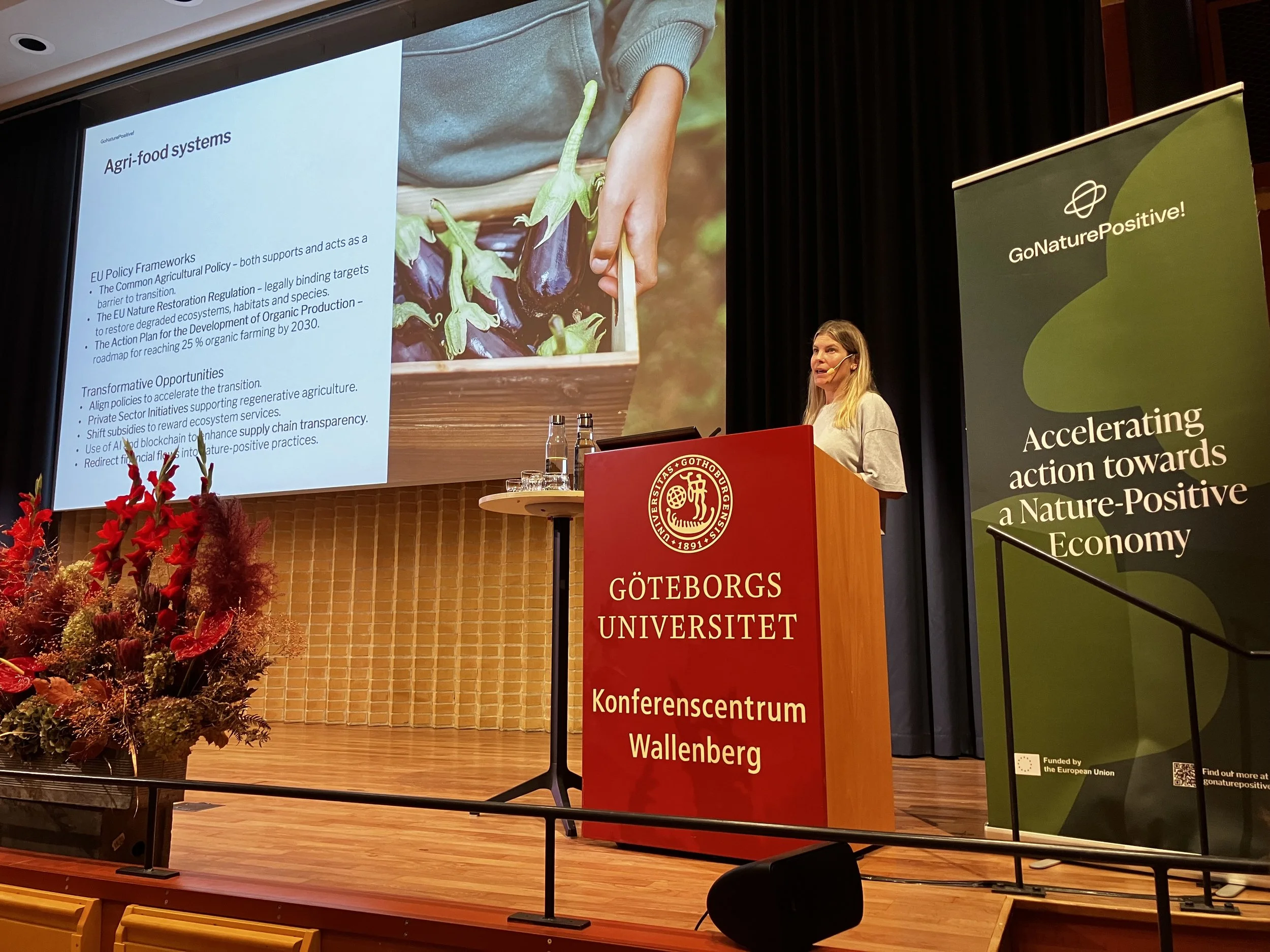Transformative Change at the Swedish Biodiversity Symposium
10 November 2025
By Linda Björk, WWF,
The Swedish Biodiversity Symposium, held from 21–23 October 2025, gathered more than 300 participants from research, policy, business and civil society to explore the theme of 'Transformative change: from knowledge to action'.
GoNaturePositive! presented the Nature-Positive Economy concept, which proposes one pathway for transformative change by reshaping our economic systems for nature and equity. This involves actions such as driving systemic change in sectors most responsible for biodiversity loss, redirecting financial flows away from harmful practices towards nature restoration, and ensuring a Just Transition for communities affected by change.
Our partners at the Ecologic Institut lead the organisation for this work, presenting alongside the analysis of EU and global policies and initiatives for advancing nature-positive actions (to varying degrees), with associated sectoral briefs for the built environment, tourism, agri-food, forestry, and blue economy.
Niak Sian Koh, Marianne Zandersen and Linda Björk
Reimagining the Good Life
Our keynote speaker, Carlos Álvarez Pereira from the Club of Rome, posed the question "What is a good life?" as a reminder that system change is not only technical—it requires a civilizational shift. The data shows that unfortunately no country today is on the path of sustainable development, where a good quality of life and ecological footprint remain within planetary limits.
He called for businesses to become regenerative: replacing short-term markets and instead contributing to equitable wellbeing for all—humans and non-humans—as the right way to restore the health of the biosphere. This builds on organisations recognising that the existential risks we face as a society, such as biodiversity loss and climate change, also pose risks for all companies.
The Business Case for Nature
In a panel discussion about the role of the private sector in the transformation, economic constraints and a lack of positive incentives were highlighted, alongside emerging examples of companies rewarding good ecological footprints through higher pricing.
David Hill from the Foundation for Nature highlighted the considerable size of nature-positive industries such as ecological restoration. The US ecological restoration industry, which resulted from compliance requirements of wetland mitigation and the Endangered Species Act, is worth an annual $25 billion USD and employs 221,000 people. This is in comparison to the declining US steel industry, which was worth $15.6 billion USD in 2024 and employs 83,600 people.
In the transition to a nature-positive economy, there are significant opportunities for businesses that have nature restoration at the core of their business model.
Policy as the Foundation
However, businesses cannot act alone. Our research demonstrates that businesses must be supported by strong and coherent policy frameworks that embed nature into all decision-making. This includes recognising nature loss as economic and financial risks and integrating biodiversity into core economic strategies.
Marianne Zandersen from Aarhus University
A Collective Path Forward
A nature-positive economy is possible—but only if we actively shape it. This requires redirection of financial flows and a systemic shift in how policy, finance, and business work together towards a common goal.
The symposium reinforced that transformative change demands action across all sectors and at all levels. From regenerative business models to bold policy frameworks, the pathway to a nature-positive future is clear. Now, we must walk it together.
Linda Björk from WWF
Find out more
Learn more about the Nature-Positive Economy framework and explore our sectoral briefs at gonaturepositive.eu/resources.




